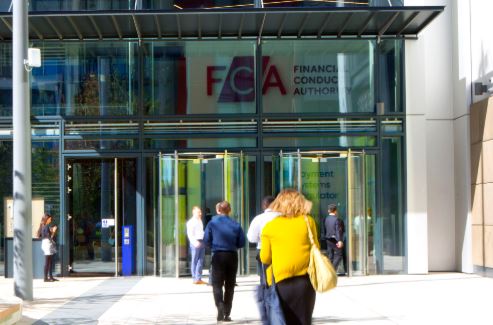The FCA has fined Santander UK almost £108m after what it says were “serious and persistent gaps” in its anti-money laundering controls. It found that between 31 December 2012 and 18 October 2017, Santander failed to properly oversee and manage its anti-money laundering systems, which significantly impacted the account oversight of more than 560,000 business customers.
The FCA concluded that Santander had ineffective systems to adequately verify the information provided by customers about the business they would be doing. The firm also failed to properly monitor the money customers had told them would be going through their accounts compared with what actually was being deposited.
Mark Steward, executive director of enforcement and market oversight at the FCA, said: “Santander’s poor management of their anti-money laundering systems and their inadequate attempts to address the problems created a prolonged and severe risk of money laundering and financial crime. As part of our commitment to prevent and reduce financial crime, we continue to take action against firms which fail to operate proper anti-money laundering controls.”
In one case, a new customer opened an account as a small translations business with expected monthly deposits of £5,000. Within six months it was receiving millions in deposits, and swiftly transferring the money to separate accounts. Although the account was recommended for closure by the bank’s own AML team in March 2014, poor processes and structures meant that this was not acted upon until September 2015. As a result, the customer continued to receive and transfer millions of pounds through its account.
Santander agreed to a request from law enforcement to keep the account open in September 2015, however, it failed to keep track of this request and the account remained open until the FCA wrote to Santander in December 2016.
The FCA identified several other business banking accounts which Santander failed to manage correctly, leaving the bank open to serious money laundering risk. There were also examples of the bank failing to promptly deal with ‘red flags’ associated with suspicious activity, such as automated monitoring alerts. These failures led to more than £298m passing through the bank before it closed the accounts.
Santander knew that there were significant weaknesses in its AML systems and controls and began a programme of improvements in 2013. While these changes resulted in some improvements, Santander concluded that the changes did not adequately address the underlying weaknesses and, in 2017, decided to implement a comprehensive restructuring of its processes and systems. Santander UK continues to invest in its ongoing transformation and remediation programme.
Santander has not disputed the FCA’s findings and agreed to settle, which means it qualified for a 30% discount on what would otherwise have been a penalty of almost £154m.
The FCA’s action is the latest in a number of fines issues to firms for poor management of anti-money laundering systems. It fined NatWest a record £264.8m in December 2021, and has also issued significant rebukes to Standard Chartered Bank and HSBC.
Printed Copy:
Would you also like to receive CIR Magazine in print?
Data Use:
We will also send you our free daily email newsletters and other relevant communications, which you can opt out of at any time. Thank you.













YOU MIGHT ALSO LIKE